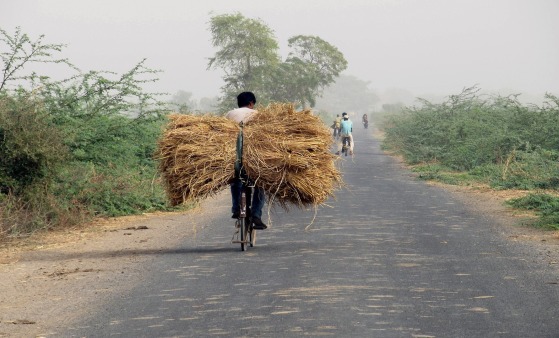A recent photography exhibition at the European Parliament served as a reminder of the injustice and exploitation at the heart of human trafficking.
The exhibition was hosted jointly by CARE and the World Youth Alliance and highlighted the link between trafficking and consumerism.
Visitors to the exhibition were invited to consider how the purchase of products or services "could be causing someone pain". The exhibition urged them to "think before you buy".
A seminar ran before the opening of the exhibition highlighting the way in which human trafficking continues to exist because of the demand for labour and sexual exploitation.
Torsten Moritz, from the Churches' Commission of Migrants in Europe, said that all forms of exploitation have three 'D's in common.
"It's always dangerous, dirty and degrading," he said.
Gerard Oonk, Director of the India Commission of the Netherlands, said trade and commercial rights often take precedence over human rights and that there is a responsibility for all people to relieve the pain of others.
He encouraged consumers to contact retailers and ask about the origin of materials used in the products on sale.
Philip Hyldgaard, European Director of the A21 Campaign, said the demand for sexual exploitation had increased as a result of the growing consumption of pornography.
He called for pressure to be put on the men who buy commercial sex, the cultures that tolerage sexual exploitation and the states that enable demand to flourish.
The photographs were taken by Adrian Cot. They include an image linking Uzbekistani cotton pickers with fashion models and women being sexually exploited with viewers of pornography and visitors to brothels.
"The photographs I have taken are my visual interpretation of what is at the very core of human trafficking - the living connections between supply and demand and the subsequent impact for the exploited and for the consumer," he said.
"Exploitation takes place right across all the countries in Europe, whether it happens where you live in Western Europe or whether people from my own home town in Romania are suffering in exploitative conditions.
"CARE's position on linking supply and demand in the context of exploitation is very significant."
David Fieldsend, the Manager of CARE for Europe, "We think it is important to prevent the obscenity of human trafficking from being a case of 'out of sight, out of mind'.
"There is a clear causal link between our purchasing patterns in Europe and the exploitation of forced and child labour from other parts of the world, as well condemning women and girls trafficked here to sexual servitude in prostitution.
"The recent adoption by the EU of a new directive on combating human trafficking is one ray of hope on the horizon, but it needs now to be effectively implemented at the national level."




